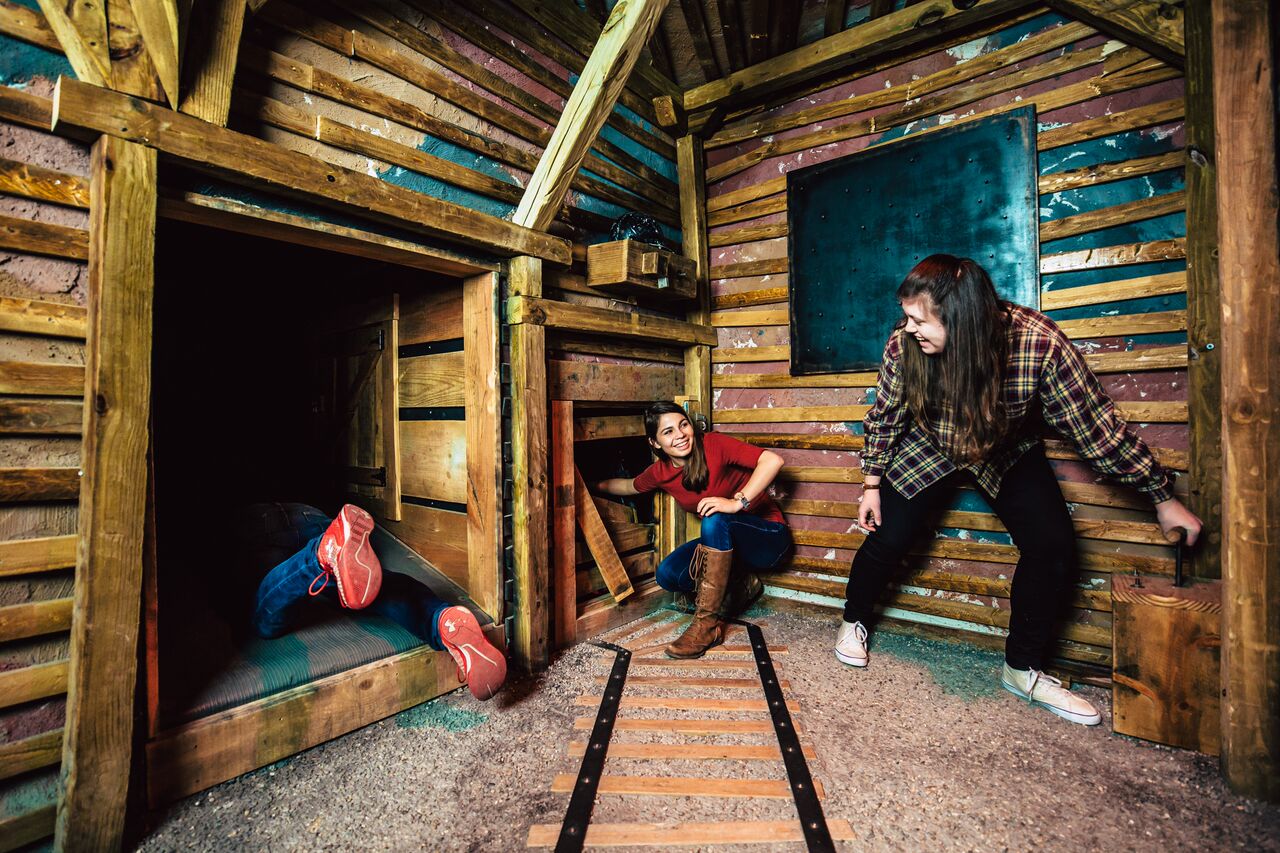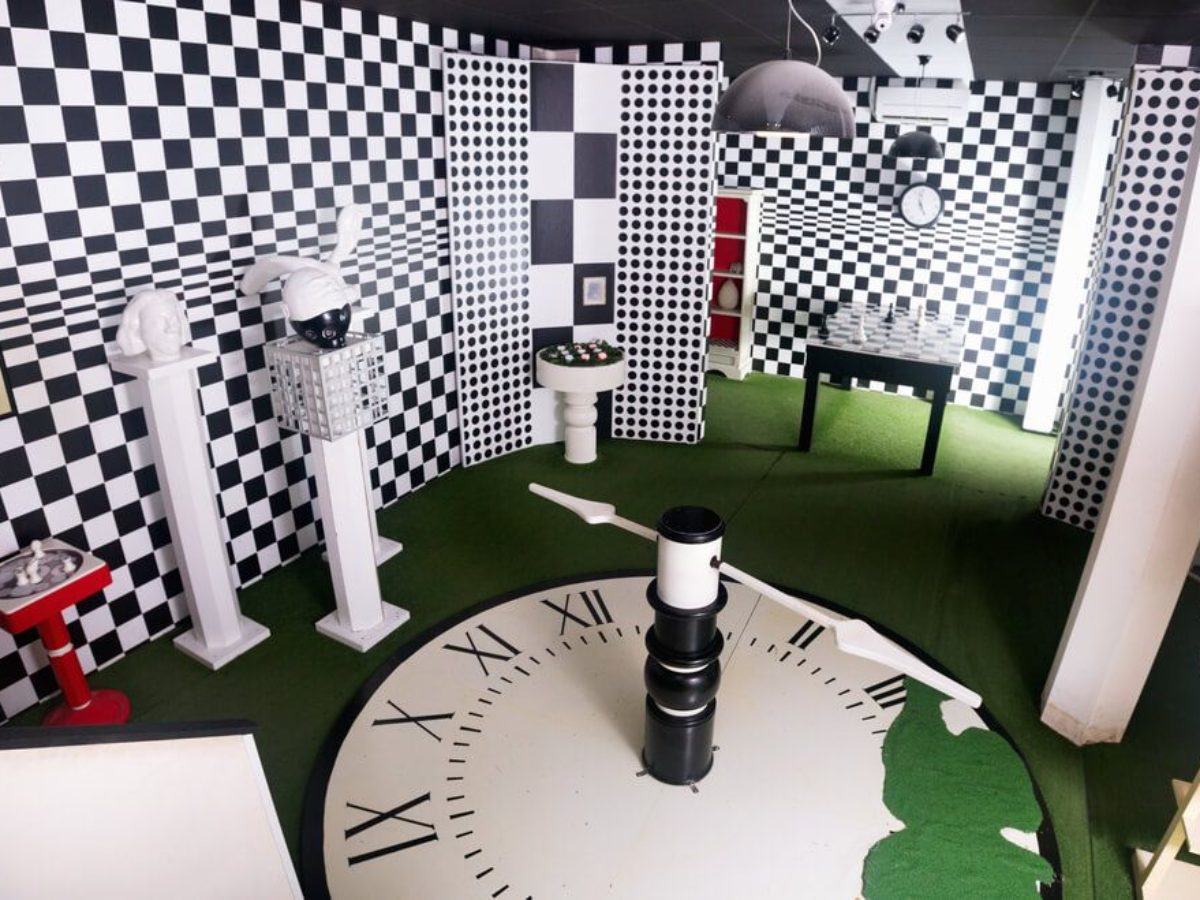Thrilling Escape Room in Minneapolis Mall of America-- Get Now
Thrilling Escape Room in Minneapolis Mall of America-- Get Now
Blog Article
Team Methods: How to Work together Efficiently in a Getaway Area
Navigating the complexities of an escape space requires greater than mere excitement; it needs a well-coordinated approach based in clear interaction, calculated function projects, and adept time monitoring. Teams should actively pay attention to each member's understandings, appoint functions that align with individual staminas, and maintain regular check-ins to make certain focus and prevent redundancy. By cultivating a setting that values communication and versatility, groups can considerably heighten their effectiveness and success rates. The nuances of these techniques can transform the experience, yet how exactly can they be applied to optimize the capacity for success?
Establish Clear Communication

To facilitate clear communication, it is important to assign a central point of get in touch with for details dissemination. Brief, focused updates from each group participant can keep the group notified without frustrating them with details.

Assign Duties Tactically
While clear communication sets the foundation for reliable team effort, appointing roles strategically makes certain that each team participant's toughness are made use of successfully. In an escape space circumstance, the time-sensitive and intricate nature of challenges demands a well-organized method to task delegation. By recognizing and leveraging individual proficiencies, teams can enhance their analytic capabilities and boost total efficiency.
A person with an eager eye for information could stand out in finding covert objects, while a rational thinker could be better fit to fixing challenges. This duty commonly calls for solid business and social skills.
2nd, make certain that duties are adaptable and adaptable. As brand-new difficulties emerge, the team must be able to pivot, reallocating tasks as required. This versatility aids preserve momentum and avoids traffic jams that could occur as a result of inflexible duty projects.
Ultimately, a tactical method to function job not just optimizes the staminas of each team participant however also cultivates a natural atmosphere, driving the team in the direction of a successful getaway.
Make Use Of Diverse Skills
Acknowledging and utilizing the varied skills within your group can substantially elevate your performance in a retreat space. Each employee brings special toughness to the table, and properly leveraging these capabilities can speed up analytic and enhance general efficiency. A team member with solid analytical skills may succeed at analyzing complicated codes or patterns, while one more with eager empirical abilities might promptly spot covert hints that others could ignore.
Reliable interaction is key to making use of these varied abilities. Urge employee to articulate their understandings and concepts quickly, making sure that all possible options are taken into moved here consideration. This comprehensive strategy cultivates a dynamic environment where creative thinking and critical thinking can prosper. Additionally, assigning tasks that align with each participant's staminas can stop traffic jams and make sure that progression is continuous.
In addition, variety in skills commonly equates to diversity in thinking designs, which is important in a getaway space setting. While some obstacles may need rational reasoning and precision, others might gain from imaginative and side reasoning. By acknowledging and leveraging this variety, groups can deal with a broader series of obstacles better, therefore boosting their chances of a successful retreat.
Manage Time Successfully

Recognize visible puzzles and separate tasks based on group participants' staminas, ensuring that nobody is idle. This practice can assist keep the group focused and prevent time from sliding away undetected.
Furthermore, avoid one-track mind. If a challenge is taking too long, rotate group members or carry on to another difficulty, returning later on with fresh viewpoints. Communication is paramount-- keep everyone upgraded on solved problems and staying tasks to prevent repetitive efforts.
Last but not least, use any type of tips or clues moderately but strategically - best escape room. Recognizing when to ask for assistance can you can try this out save important time. By sticking to these time management concepts, teams can dramatically enhance their opportunities of a successful and satisfying getaway space experience
Debrief and Mirror
Representation is a necessary aspect of group growth and improvement in the context of escape spaces. When the difficulty is finished, whether efficiently or not, it is vital for the team to like it take part in an organized debriefing session. This process enables group members to assess their performance, determine staminas, and identify areas for enhancement.
Start the debrief by reviewing what worked out. Highlight particular circumstances of effective communication, analytical, and partnership. Recognizing these favorable actions reinforces them and encourages their rep in future challenges.
Next, resolve the barriers encountered. Talk about moments of confusion, miscommunication, or inefficient methods. Urge an open and positive discussion where staff member can share their viewpoints without anxiety of objection. This cultivates a culture of continuous improvement and knowing.
Conclusion
Finally, effective cooperation in a retreat space is asserted upon clear communication, strategic duty jobs, the reliable utilization of diverse abilities, and competent time management. Normal check-ins and structured debriefings are important for preserving emphasis and fostering continual renovation. By creating a cohesive and adaptive group setting, the chance of effectively fixing problems and achieving the purpose of getting away the room is significantly improved. This approach not just guarantees success yet also promotes cumulative growth and learning.
Report this page